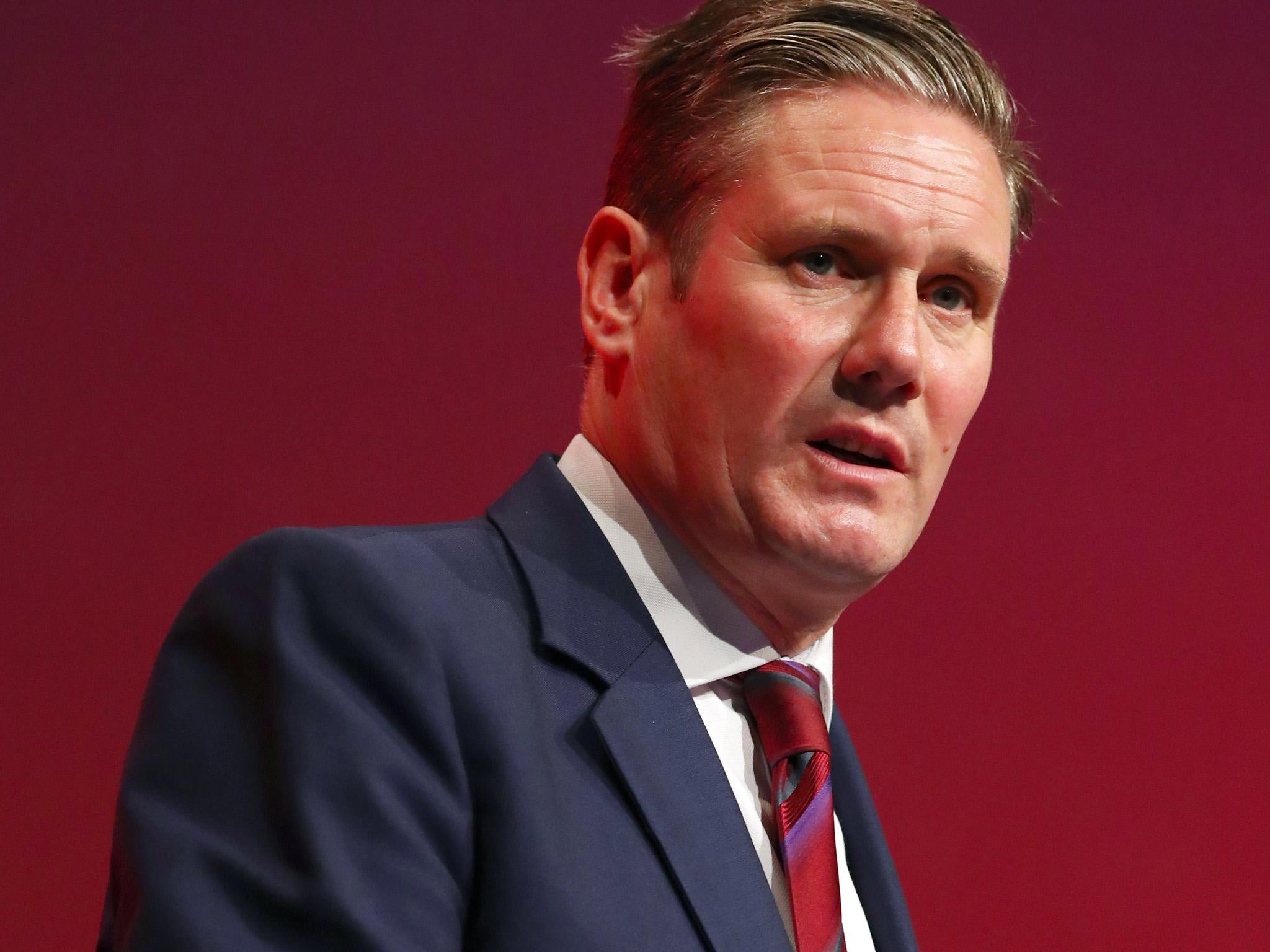Far from a ‘coup’, this democratic step could give the people a Final Say on Brexit
If Theresa May and Jeremy Corbyn oppose a new referendum, it falls to others to give MPs a democratic choice – and Sir Keir Starmer, Yvette Cooper and Dominic Grieve are among those playing their part

Your support helps us to tell the story
From reproductive rights to climate change to Big Tech, The Independent is on the ground when the story is developing. Whether it's investigating the financials of Elon Musk's pro-Trump PAC or producing our latest documentary, 'The A Word', which shines a light on the American women fighting for reproductive rights, we know how important it is to parse out the facts from the messaging.
At such a critical moment in US history, we need reporters on the ground. Your donation allows us to keep sending journalists to speak to both sides of the story.
The Independent is trusted by Americans across the entire political spectrum. And unlike many other quality news outlets, we choose not to lock Americans out of our reporting and analysis with paywalls. We believe quality journalism should be available to everyone, paid for by those who can afford it.
Your support makes all the difference.If in the end parliament decides to allow the British people the final say on Brexit in a new referendum, Sir Keir Starmer, Yvette Cooper and Dominic Grieve will be leading names among those who should be praised for doing their democratic duty.
Sir Keir has fought tenaciously to keep the leader of the Labour Party from closing off the option of another referendum, which is overwhelmingly supported by its members. Today the shadow Brexit secretary kept up the pressure by saying, in a speech to the Fabian Society, that, if the party could not force a general election, there were only “two remaining options”.
One is to push the government to a “close economic relationship with the EU” – in other words, a permanent customs union. The other is “the option of a public vote”, he said. This sounds quite different from Jeremy Corbyn’s attempt to present a referendum as a distant possibility, well down a long list of other options.
The leader of the opposition tried on Wednesday to trigger an election, but he lost, and so now the other two options come into play. It may be possible to amend the non-binding part of the prime minister’s Brexit deal, the political declaration on the long-term trade relationship with the EU, to meet Labour’s tests. But Theresa May is unlikely to concede because she would risk losing most of her MPs.
That takes us straight to a Final Say referendum. Some in Mr Corbyn’s close circle had hoped to fend off this demand by suggesting a public vote on different options for leaving the EU. But Sir Keir killed off that idea by insisting, in his speech at the party’s annual conference last year, that the option of remaining in the EU must be on the ballot paper of any referendum.
He won a standing ovation for this excursion beyond the text of the party’s formal policy, which speaks only of “a public vote” as an option, without specifying the form it should take. In today’s speech he reiterated: “I firmly believe there should be a remain option.” It would be unthinkable now for Mr Corbyn to try to exclude it.
If Sir Keir has brought the Labour Party to the brink of where it needs to be, we should be grateful to a number of backbenchers on both sides of the House of Commons for making the next steps possible.
On Monday, Dominic Grieve, the Conservative former attorney general, will propose a change to the rules of the Commons that would temporarily take control from the government and allow a cross-party group of backbenchers to table legislation to break the Brexit deadlock.
Yvette Cooper, the Labour chair of the Home Affairs Committee, will then table a bill to take a no-deal Brexit off the table. This is presented in the hard-Brexit-supporting press as a “coup” against democracy when it is in fact the opposite, an attempt to give power to the widest possible coalition of our elected representatives. And it is a blow struck against the blocking minority of Conservative MPs who want to force the UK to leave the EU without an agreement, which would be an undemocratic disaster.
Ms Cooper’s bill will force MPs to choose between whatever “improved” deal Theresa May can offer and the option of postponing Brexit in order to hold a referendum.
The Independent hopes that MPs will make the right choice. But whatever the outcome, Sir Keir, Ms Cooper and Mr Grieve have shown the leadership that the prime minister and the leader of the opposition have so signally lacked.
Join our commenting forum
Join thought-provoking conversations, follow other Independent readers and see their replies
Comments